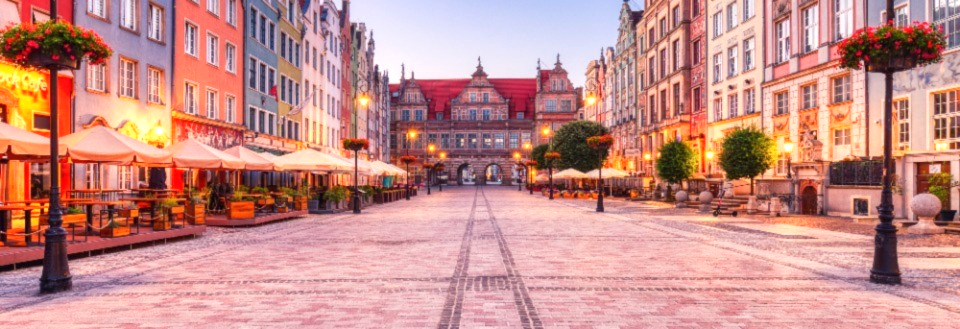Lithuania, together with Latvia and Estonia, comprise the Baltic States. Ever since the dissolution of the Soviet Union they have attracted many thousands of European tourists. Though the mark of Soviet dominion still remains to be seen in Lithuania - it is still a fascinating travel destination, both culturally and historically, in its own right.�
Lietuvos Respublika
Vilnius (597,000)
65,200 sq. km
Lithuanian
Roman Catholic
3,700,000 (1995)
Republic
Lithuania is a very flat country. It has a number of rivers - with Nemunas as the largest - and some small islands.�
You can visit Lithuania all year around, but in terms of the weather it is best to go in the period from May to October. The Lithuanian winter can be very cold and snowy.�
Litas
You'll find Internet cafés in the capital of Vilnius and in Kaunas, the second largest city.
To call for help in Lithuania you dial the following numbers:
Police: 02
Ambulance: 03
Fire: 01
Taxi drivers, hairdressers, and waiters in restaurants usually expect you to add 10-15 per cent to the bill.
Lithuania is two hours ahead of GMT. When it's noon in the UK, it's 2 pm in Lithuania.
Lithuania uses the metric system.
If you avoid taking pictures of public buildings and exhibit general courtesy by asking people's permission before photographing them you shouldn't have any problems.
220 Volts AC/50 Hz
Banks are open from 9:00 am to 12:30 pm Monday to Friday, and some banks open for business again for a few hours in the afternoon as well.
Shops are open from 10:00 am to 6:00 pm Monday to Friday and from 9:00 am to 1:00 pm Saturdays. Some shops will close for lunch.
Offices are open from 9:00 am to 1:00 pm and again from 2.00 pm to 6:00 pm Monday to Friday. Government offices are open from 10:00 am to 3:00 pm Monday to Friday.
The menus in Lithuanian restaurants are mainly inspired by Russian and Slavic cuisine, so varieties of flesh dishes are the dominant fare. In the drink department there is local Lithuanian vodka and liquors, and the country's excellent beer.
�
New Year's Day: January 1
Independence Day: February 16
Day of National Rebirth: March 11
Labour Day: May 1
National Day: July 6
All Saints Day: November 1
Christmas: December 25 and 26
There are a number of camping grounds in Lithuania, mostly along the coast and near the major cities. Many of the inland camping grounds are fairly shabby, sometimes no more than a piece of bare ground.
After the fall of soviet 'communism' the Lithuanian people have worked hard to bring the hotels up to Western standards - and with some success. The invasion of the international hotel chains has been particularly successful. You still run into the odd ultra low quality hotel, but then the price is accordingly low.�
The Lithuanian tourist office arranges private accommodation with local families, and unless you have a problem with living close together with people you don't known, it can be a very rewarding cultural experience.
Youth hostels are quite common in Lithuania.
Apart from the main airport in Vilnius there are a number of small airstrips, but there aren't many domestic flights.
Lithuanian buses are generally cheaper, faster, and more reliable than the trains. Furthermore the buses will take you to even the most remote corners of the country.�
The Lithuanian railways connect the major cities, but if you're going out in the country, you should probably take the bus.
It's easy to hail a taxi in most Lithuanian cities. They're generally cheap, but remember that they usually charge extra at night. It's always a good idea to agree on the price before the ride.
You can rent both cars and chauffeurs in Lithuania through your hotel or directly from a rental company. The Lithuanian road system is generally not bad, but many small roads are unpaved, and you will come across the occasional hole in the road.
